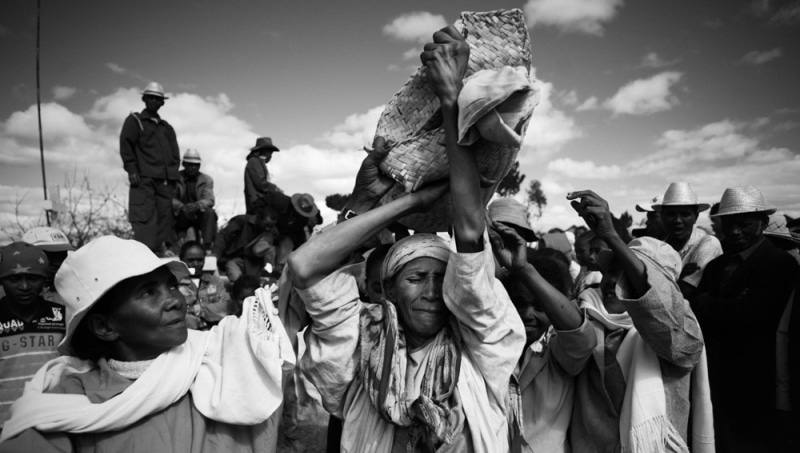Culture of Madagascar:
Located between Africa and the Indian Ocean, the island of Madagascar is the scene of a unique traditional ceremony called “l’exhumation” which takes place every year from July to September. This period corresponds to the cold season in the Highlands, where the temperature varies between 0 and 20 degrees. The inhabitants of the Highlands perpetuate these ancestral rituals, which are an integral part of the culture of Madagascar, to symbolize a renewal and establish a link with their ancestors.
The exhumation is an important moment that marks the beginning of the agricultural season. Farmers appeal to “Zanahary” (supreme deity) and ancestors to protect and bless them during this new growing season. It is also a pact with the ancestors, because by performing this ritual, the living watch over the eternal rest of their ancestors, thus perpetuating the ancestral customs of the culture of Madagascar.
The exhumation is preceded by a long process. Families need to save for a period of time to be able to honor the memory of their ancestors. The festivities surrounding the ritual are grandiose : traditional music, food for all guests, plenty of drinks. Administrative procedures are also necessary to open the family grave, highlighting the importance of the culture of Madagascar in each step of this ritual.
All this represents considerable expense, and some farmers go so far as to sell their rice fields in order to compete with their neighbors. The duty of memory is an obligation, but the culture of outdoing your neighbor is deeply rooted in these cold lands in the center of the island, thus reflecting the richness and complexity of the culture of Madagascar.
The auspicious day for the celebration is determined in collaboration with a diviner. Guests are coming in and they need to be fed and entertained. The grave is open, gifts are offered in the form of meat, silver or shrouds. The bodies are cleansed, dressed in new shrouds, then brought back to the village where a night of celebration awaits them. This celebration is a living example of the culture of Madagascar, a legacy passed down from generation to generation.
During this evening, memories with the deceased ancestor are evoked. A night of festivities continues until morning, where a last meal is shared with all the guests. In the afternoon, at sunset, the ancestors are brought back to their stone dwelling. This celebration strengthens family ties, belonging to an origin and a people, highlighting the importance of the culture of Madagascar in the preservation of Malagasy identity.
Some may consider this ritual barbaric or morbid, but for the Malagasy people, it remains a pillar of identity, a living testimony to the culture of Madagascar. Even families from the cities willingly take part in these ceremonies of a bygone era., thus perpetuating the traditions and culture of Madagascar in their daily lives. The “Betrayal” remains an essential part of the identity of this people from elsewhere, a cultural heritage to preserve and pass on to future generations.

